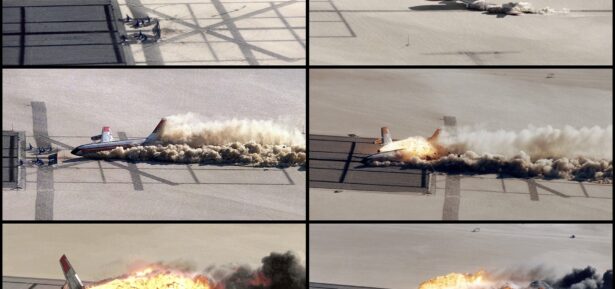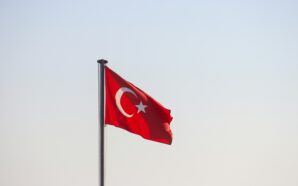

Credit: Unsplash
On the two-year anniversary of the ongoing conflict between Ukraine and Russia, there is much to reflect upon. Since the initial invasion by Russian forces on February 24, 2022, Ukraine has faced and overcome considerable challenges. At the time, it seemed that Moscow was poised for a quick and decisive victory. However, Ukraine’s resilient defense has proven to be a formidable obstacle for Russian forces. What was once expected to be a short, bloody victory for Moscow has turned into a prolonged conflict that has left both sides in a state of stalemate.
Over the course of the last two years, both Ukraine and Russia have experienced significant changes and have been forced to adapt their strategies accordingly. On the one hand, Ukraine has demonstrated its ability to make strategic use of naval drones to deal significant blows to the Russian Navy. On the other hand, Russia has invested heavily in the development of larger, purpose-built military systems.
In the air domain, despite the mutual denial of air superiority due to effective integrated air defenses, both Ukraine and Russia have increasingly turned to drone warfare to conduct strikes. The Ukrainian government, in particular, has made use of agile combat techniques to avoid Russian attacks, while also receiving longer-range missiles from allies.
Furthermore, in the land domain, allies of Ukraine have stepped up to provide crucial training and support. Other European nations have been able to make significant contributions to Ukraine’s evolving ground-based weapon systems and formations, with a focus on armored vehicles, artillery, and drones.
In the space domain, commercial satellite services have become crucial for communication and military operations. The Russian attempts to jam Starlink, for example, were largely unsuccessful. The ongoing conflict has also highlighted the need for the US military’s space forces to emphasize smaller, more maneuverable satellites.
In the electronic spectrum, both Ukraine and Russia have engaged in a seesaw conflict of cyber/electronic warfare. Ukrainian forces initially held the advantage, with Russia adapting its strategy over time. However, the lessons learned from this conflict are driving the development of more sophisticated tactical electronic warfare capabilities.
Finally, the geopolitical landscape surrounding the conflict has been dynamic. While the US has shown wavering support due to internal political factors, Europe has steadily increased defense spending and military aid to Ukraine. However, military hardware has not always delivered decisive advantages, and ammunition shortages persist.
The war in Ukraine has been a complex and evolving conflict with significant implications for the future of modern warfare. The lessons learned from this conflict will continue to shape military strategies and technologies in the years to come. As the conflict enters its third year, the challenges facing Ukraine remain significant, but the resolve of the Ukrainian people remains strong.
America’s Successful Moon Landing Since 1972
-
Pakistan has been grappling with significantly slow internet speeds for weeks, sparking debate over the cause of the connectivity...
-
On the eighth day of the track and field events at the 2024 Paris Olympics, Arshad Nadeem of Pakistan...
-
The recent anti-immigrant riots in the United Kingdom serve as a stark reminder of how unchecked misinformation on social...
-
In a tragic turn of events, the death toll from two landslides in a remote region of southern Ethiopia...
-
In a dramatic and unprecedented public declaration, Shaikha Mahra bint Mohammed bin Rashid Al Maktoum, daughter of Dubai’s ruler,...
-
China’s foreign minister Wang Yi has strongly refuted NATO’s accusations that Beijing is aiding Russia in its war on...
-
The highly anticipated wedding of Anant Ambani, the son of Asia’s richest man Mukesh Ambani, is set to culminate...
-
Turkey has unexpectedly backed Greece in its ongoing effort to reclaim the Elgin Marbles from the United Kingdom, describing...
-
Turkey’s inflation rate has soared past 75% in May, marking what economists believe to be the peak of the...
-
Iranian authorities have confirmed that President Ebrahim Raisi and seven other officials were killed in a helicopter crash on...
-
As the United States continues its support for Ukraine, FBI officials are closely monitoring the possibility of increased Russian...
-
Presight, an Abu Dhabi-based artificial intelligence firm, has finalized the acquisition of a 51% stake in AIQ, a prominent...




















